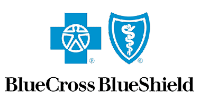How Assistance Works
Streamlining our patient’s specialty pharmacy experience with unmatched full-service convenience
-
1. Check Your Coverage/Benefits Verification
Our team of expert billers finds the best avenues of coverage that minimize out-of-pocket costs.
-
2. Transfer Prescription to AmeriPharma®
We process your prescription by working with your previous pharmacy or prescriber, making the transition quick and easy.
-
3. Prior Authorization
Our team of specialists obtains approval from your insurance companies within 24 to 72 hours.
-
4. Copay Assistance & Financial Aid
We secure financial aid and decrease copays, out-of-pocket expenses, and high deductibles. To date, AmeriPharma® Specialty Care has secured $55 million in financial assistance for our patients.
-
5. Nursing Care Coordination
AmeriPharma® puts your schedule and home environment first when scheduling and coordinating one of our specialized nurses for your in-home infusions.
-
6. Delivery Coordination
Medications are always delivered in strict compliance with the specific requirements for shipping. Next-day and overnight cold-chain deliveries are coordinated around your schedule.

What Is Kisqali?
Kisqali is the brand name for ribociclib, an oral medication used to treat a particular type of breast cancer. It is not available as a generic drug.
Breast cancer is the second-most common cancer among women in the United States. Breast cancer among men is also possible, though much rarer. There are many different forms of breast cancer, and Kisqali is effective at slowing the growth of a specific type. The type of breast cancer that Kisqali is approved to treat is HER2-negative, meaning that the cancer cells do not contain a particular type of protein that affects their growth. It is also hormone receptor-positive, meaning that hormones such as estrogen can promote the growth of the cancer cells.
Kisqali is used to treat metastatic breast cancer (cancer that has spread to other areas of the body). It is approved as a first-line treatment for men and for postmenopausal women with breast cancer. When used in combination with hormone therapies, Kisqali can increase survival by approximately 5 years.

How Does Kisqali Work?
The nucleus of some cells of the body contains proteins that encourage cell division and growth. When the proteins are overactive, cancer cells can proliferate. Kisqali works to block some of the proteins that cause excessive cell division and growth, particularly two specific proteins called CDK4 and CDK6. This can slow the growth of cancer cells and possibly stop it altogether.
Kisqali is not given as a cancer treatment on its own. Because the type of cancer that it treats reacts to the presence of hormones, it is prescribed in combination with a hormone-blocking drug. The patient has to take the two drugs separately but at the same time for them to work properly. While outcomes can be positive for patients taking hormone therapy alone, adding Kisqali improved the results in a clinical trial entitled MONALEESA-2.
Copay and Financial Assistance
AmeriPharma™ Specialty Pharmacy alleviates financial burdens for patients and their families
-
Advanced software locates funding sources to match you with top-dollar foundation programs
-
One of our copay assistance specialists will assist with the application process
-
Automatic updates will be sent to you and your physician on the status of the funding

Directions for Use
Kisqali is available in tablets of 200 mg. The dosage for adults is typically 600 mg once a day, meaning that you would take three tablets at a time. This is only a typical dosage and should not supersede the instructions you receive from your doctor.
You should take Kisqali at the same time every day, ideally in the morning. You can take it either with or without food. Kisqali can cause vomiting, and if you vomit after taking a dose, you should wait to take it again until your next scheduled dose rather than take another dose right away. Avoid eating grapefruit or drinking grapefruit juice while taking Kisqali. This can cause elevated levels of Kisqali and lead to adverse reactions.
When taking Kisqali, you will follow a 28-day treatment cycle. This means that you take it every day for the first 21 days, then skip the next 7 days to complete the cycle. You may then start another cycle until your doctor discontinues treatment.
Like other cancer drugs, Kisqali is a very potent medication. You should not take Kisqali if the tablet is damaged or broken. Do not crush or chew the tablets before swallowing them. Kisqali can cause birth defects and is absorbable through the skin, so pregnant women should not take it or handle the tablets, especially if they are broken.
Kisqali Side Effects
- Hair loss
- Fatigue
- Increased risk of infection from decreased white blood cells
- Decreased red blood cells (anemia)
- Insomnia
- Itching
- Rash and sometimes severe skin reactions
- Nausea, vomiting, and diarrhea
- Mouth sores
- Headache
- Decreased appetite
- Cough
- Constipation
- Bleeding or bruising
- Tingling in the hands or feet
- Sore throat
- Pallor or jaundice
- Pain in the side or lower back
- Difficulty urinating or frequent urge to urinate
- Fever
- Chills
- Cloudy or bloody urine
- Swelling or bloating
- Bladder pain
- Dark, tarry stool
- Stomach pain or cramps
- Seizures
- Muscle cramps
- Confusion and mental or mood changes
- Weakness or general malaise
- Fainting
- Dizziness
- Chest pain
- Allergic reaction
- Abnormal heart rhythm
- Liver problems
- Lung inflammation and difficulty breathing
- Interstitial lung disease
Insurances Accepted
We accept Medicare, multi-state Medicaid, Medi-Cal, Blue Shield, and most private insurances. Call us to find out more about your coverage.
Get Started in Minutes
Fill out your information and one of our specialists will call you ASAP.
How Much Can You Save?
Complete this form to save up to 100%!
By submitting, you agree to AmeriPharma’s Terms of Use, Privacy Policy, and Notice of Privacy Practices









